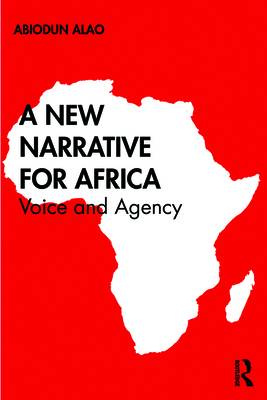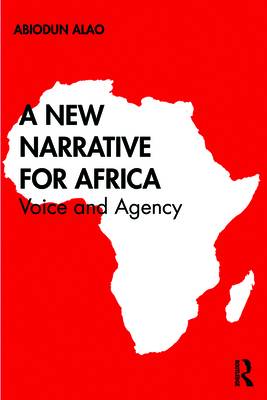
- Retrait gratuit dans votre magasin Club
- 7.000.000 titres dans notre catalogue
- Payer en toute sécurité
- Toujours un magasin près de chez vous
- Retrait gratuit dans votre magasin Club
- 7.000.0000 titres dans notre catalogue
- Payer en toute sécurité
- Toujours un magasin près de chez vous
Description
This book examines the perception of Africa in the global system, tracing Africa's transition from a "problem" to be solved into an agent with a rising voice in the world.
Mixing Afro-optimism with heavy doses of Afro-reality and Afro-responsibility, this book calls for a new political narrative about Africa that captures the multi-disciplinary dimensions of Africa's "transition" and critically examining its ramifications. The author discusses the origins of the "Problem" perception held about Africa and explains how things are turning around and how the continent is now becoming a voice to be heard rather than a problem to be solved. He then goes on to interrogate some of the key manifestations of this new "voice" and identifies how the world is responding to the new "voice" of Africa before finally examining some of the contradictions that have been embedded in the transition. The book is strategically multi-disciplinary - emphasizing key disciplines of African studies in different chapters - for example: anthropology, ethnography, and philosophy in Chapter 1; history, in Chapter 2; economics, in Chapter 3; politics, in Chapter 4; arts, literature, and aesthetics, in Chapter 5; religion, in Chapter 6; and globalization, in Chapter 7. Through this, A New Narrative for Africa explores and analyses several of the various strands of the African studies discipline, examining the transformation of African on the global stage over the course of its history.
Taking an interdisciplinary approach, this book will be of interest across African Studies, Global Affairs, Politics, Economics, and Development studies.Spécifications
Parties prenantes
- Auteur(s) :
- Editeur:
Contenu
- Nombre de pages :
- 200
- Langue:
- Anglais
Caractéristiques
- EAN:
- 9780367228682
- Date de parution :
- 03-12-19
- Format:
- Livre relié
- Format numérique:
- Genaaid
- Dimensions :
- 155 mm x 236 mm
- Poids :
- 430 g

Les avis
Nous publions uniquement les avis qui respectent les conditions requises. Consultez nos conditions pour les avis.






